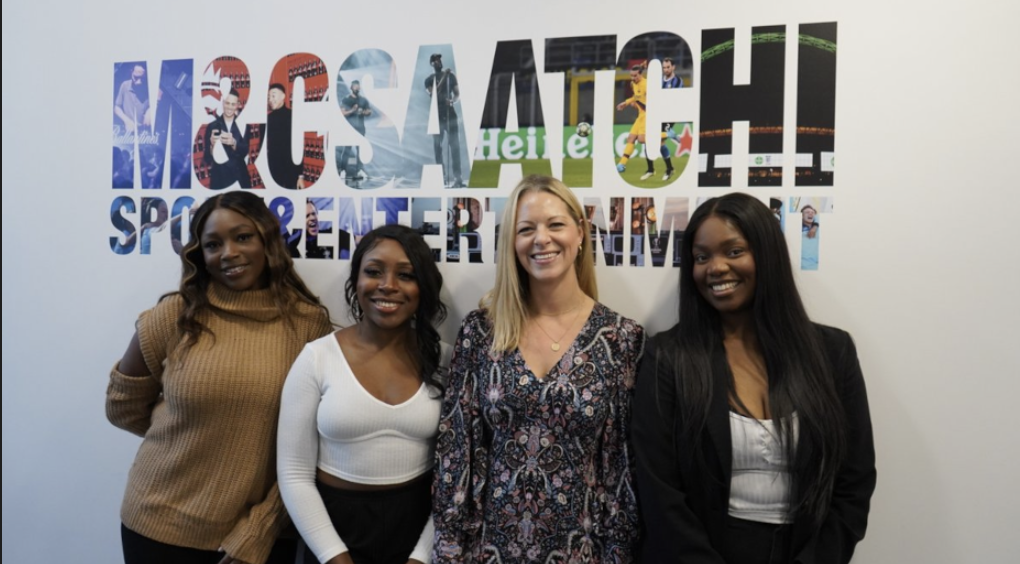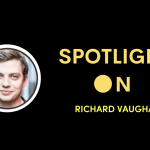How authentic partnerships and collaborations can be the key to inclusion.
Black History Month is a great opportunity to look back at the history of Black people within the UK and to celebrate the achievements and cultural impact of significant Black figures in the present. So, you may wonder why some Black people are becoming increasingly disillusioned with the month.
While most will agree it represents amazing things, sadly many of the innovative initiatives and thoughtful commitments which aim to celebrate and make life better for the community, fall by the wayside once the calendar month ends. Here in ad land, we can be guilty of this too. Putting great efforts into inclusivity around a specific time of year or for a specific brief. However, more than ever it’s important that brands are being truly inclusive in their practices, all year round. Not only do we hold a responsibility to do so, but consumers actually care about it.
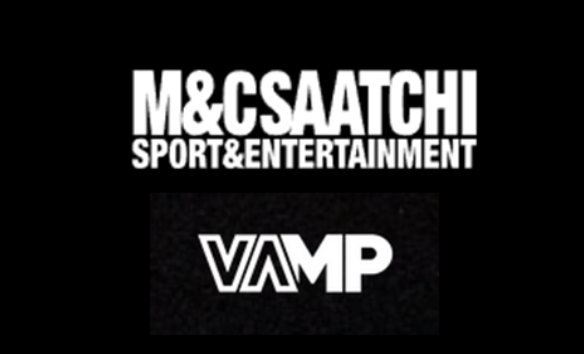
In this interview I sat down with Jodie Fullagar, Co-Managing Director of M&C Saatchi Sport and Entertainment who is dedicated to ensuring inclusivity is at the heart of their work both internally and externally. In October, Sport & Entertainment announced their official partnership with VAMP – a Black owned Digital Talent & Entertainment PR agency. They launched the partnership with Beyond Black History Month – a pledge which invites brands to join them in celebrating and authentically incorporating Black culture in internal cultures and external comms year-round and long term.
So, Jodie, let us know – how did the Sport & Entertainment partnership with VAMP come about?
Our cultural change consultants Utopia pulled together a shortlist of interesting businesses that they felt we could be looking at from a pro-bono perspective and we met VAMP in that guise. Of course, I wanted to help promote their business more or offer guidance, but I quickly realised how valuable they could be to our work and our clients, which became very exciting. We needed their expertise, energy, and authenticity in our work.
We started talking about Black History Month – while it’s so important it’s also frustrating, because it’s one month in the year. So, we decided to come up with the Beyond Black History Month concept. Let’s use Black History Month to say to our clients “it shouldn’t just be about this month.” Yes, let’s celebrate incredibly important people and historic moments this month, but let’s think about how you can authentically incorporate Black culture and promote and celebrate Black talent all year around.
I’ve seen the pledge has been described as an actionable commitment. Do you have any more details about what that output could look like?
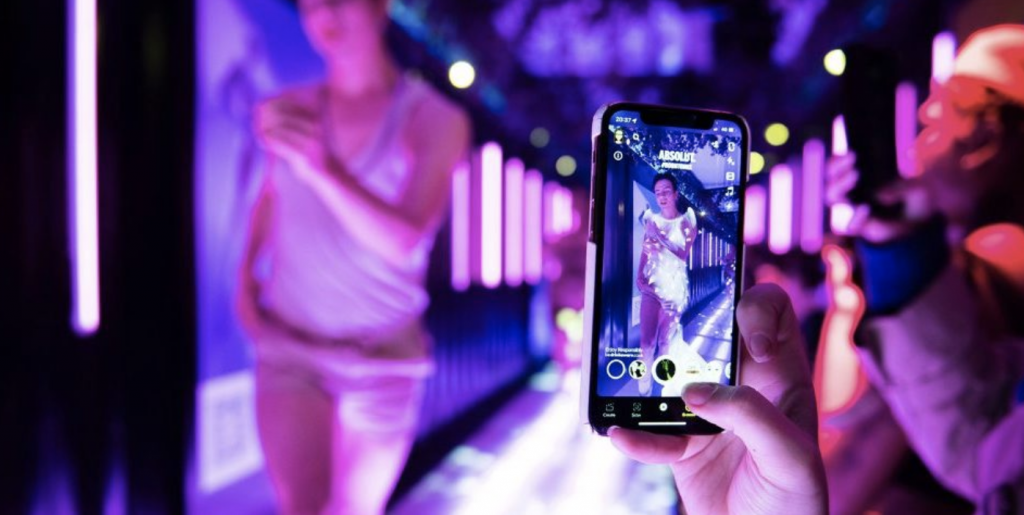
The first thing we want to do is create an engaging event where we can invite our clients to be inspired and more importantly, hear from some exciting talent they should be thinking about working with to represent Black culture more authentically. We want to develop some assets like a Black cultural calendar, something that showcases the different moments that are huge for lots of different Black communities and the ways in which brands can be involved in an appropriate and authentic way. We’re supporting the Black Influencer Awards, which we co-founded, as is M&C Saatchi Social. As part of that, VAMP is going to create a list of incredible influencers and content creators that perhaps our clients don’t know about.
All these assets allow us to have that conversation with our clients – that they should be thinking about Black culture in all of their comms and marketing plans, year-round. Not necessarily always on, but inclusion shouldn’t be only when you’re trying to target a certain community. Inclusion should come through in all the work you do.
I hope this is the kind of thing we can see more of in the industry, two entities complimenting each other’s expertise for positive change. What change would you like to see within the industry and the space of inclusive marketing within the next few years?
Embracing the spirit of collaboration and partnerships to develop the most inclusive work. I really believe we need to enter into a world where we work with multiple creative partners voices in order to do the most impactful and inclusive work. Yes, we need to strive for representation in every business, but this idea that you can create an agency which is the most inclusive agency and therefore represent all voices is really flawed. Intersectionality is so multi-dimensional and endless. You can’t possibly represent all of those perspectives in one business.
Secondly, I don’t think there’s enough acknowledgement of the power we hold in the comms industry, because we can literally make the kind of society we want to live in. Sounds utopian, but you can create the society and the harmony that is missing. The problem with only ever seeing certain types of people on very influential media platforms is it becomes so systemic and limiting for so many people that aren’t represented. At least now we’re in a place where there is so much research and proof that representation, inclusion, and purpose-led marketing can be commercially successful. It’s about getting our clients to realise that; it’s increasingly expected from their consumers that they need to have the shared values that they do and they have a responsibility because they do so well from leveraging these spaces.
What do you think comes first – do agencies need to push clients to be at the forefront of positive change and inclusion or do agencies need to work with clients who have those values in mind?
Both! Sport & Entertainment builds purpose into every single response we do – to different degrees. Some clients make it really clear upfront that this is an area they want to explore and that the response must demonstrate how we can create positive, meaningful change. Other briefs are a lot more straightforward, like brand affinity consideration briefs looking to associate with passions and be culturally relevant. The beauty of that is, we say in order to be culturally relevant, you need to actually be helping to shape culture.

We did a great piece of work for Google Pixel, for their EMEA team. They came to us and said they want to develop an EMEA worldwide cultural strategy. They wanted to know what it means to be culturally relevant. What was nice is that we were able to show through audience needs, desires and macro trends that their audience are very progressive thinkers, and for Google Pixel to be culturally relevant they need to be shaping culture, not just turning up in culture. We ended up getting to a really purpose-led place with them.
Do you have any other examples of how diversity has shaped some of the great creative work you’ve made as agency?
Absolut Vodka has historically been really progressive and championed marginalised voices and communities but had lost their way a bit when it comes to having a view on culture and progress. We developed something called ‘The Absolut Choir’ – developing a choir full of changemakers in lots of different areas – whether that be body positivity, trans rights or disability rights, and bringing them together. Absolut’s proposition is the power of mixing. The choir mixed these voices together in a very literal sense, but also in a very metaphorical sense and turned up the volume of their voices which individually are not strong but are together.
We were working with so many different groups we had to make sure we were telling a story as authentic as possible, but also that they felt heard and supported throughout. On set, you have to really think about what the experience of each individual is in this commercial environment. How do we make sure they feel as safe as possible? I think that’s a piece or work we’re really proud of. It’s such a pure articulation of what we think Absolut stands for, but it’s got progress at the very heart of it. It can’t be an afterthought. It’s not a bolt-on or a single asset or a pillar.
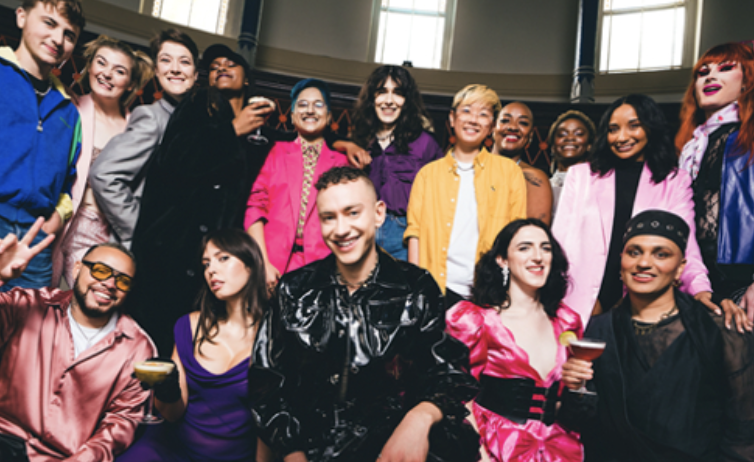
How do you ensure the work you do around inclusivity and marketing isn’t just outward facing as an agency? How do you make sure that it’s in the fabric and culture of the office and people who work with you?
We’ve done a lot of work on that, before we started taking on external work, because we just didn’t feel that we could really influence our clients if we weren’t at least on the right journey or weren’t comfortable that it was at the core of our own agency and culture. We talk about our own culture as inclusive creativity and that’s because I think as an agency creativity comes from everyone. Everybody has got a voice, and everybody brings creativity to the table everyday. We’re doing yearly surveys and we have an inclusion advisory board made up of employees who bring stuff to the table: things we can do or issues and feedback they have for us as an agency.
But I think the most important thing you can do is make sure the entire agency knows that it’s central to your proposition, your ambition, and the work you want to do. There’s all the obvious stuff like training, but we also bring lots of different voices into the business to speak about lived experience, and we champion the work we’re doing for our clients in this space. We’re launching external initiatives like Step Up, partnerships like VAMP, Inclusion Alliance – it says to everyone this is who we are, and this is what we stand for. I love it when I see purpose led campaigns we’ve done that I haven’t been close to because it shows how its becoming deeply ingrained in the fabric of our work. There was a nice piece of work that the Amsterdam office did with Reebok. I didn’t know about it, I had nothing to do with it, and it’s brilliant. It’s starting to become who we are and then it naturally filters through our work.
What would be the one thing you would tell teams or agencies who want to make more inclusive work or want to have a better internal culture but don’t know where to start?
- First thing they can do from an internal perspective is set the tone in a very clear way to communicate to the business: this is who we want to be as a business. If you’re not there yet, then communicate this is the kind of business and culture we want to have.
- Identify the steps to getting there. Training with the right partners to make sure everybody has the same degree of education around inclusion and what that looks like.
- To make inclusive work you need to make sure you’re gaining insight at the very early stages of developing work. It starts with killer insights, but those insights need to be diverse in the same way your work needs to be diverse. You need to be understanding of what those different perspectives are at the start of the journey and making sure that’s fed into the creative brief and throughout the process. Representation needs to happen all the way through the work.
This interview has been edited for length and clarity.
By Tanya Nyamadzawo

